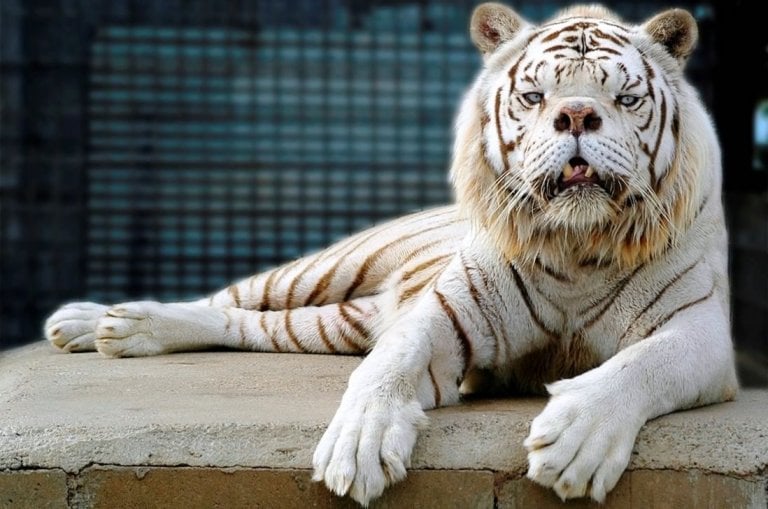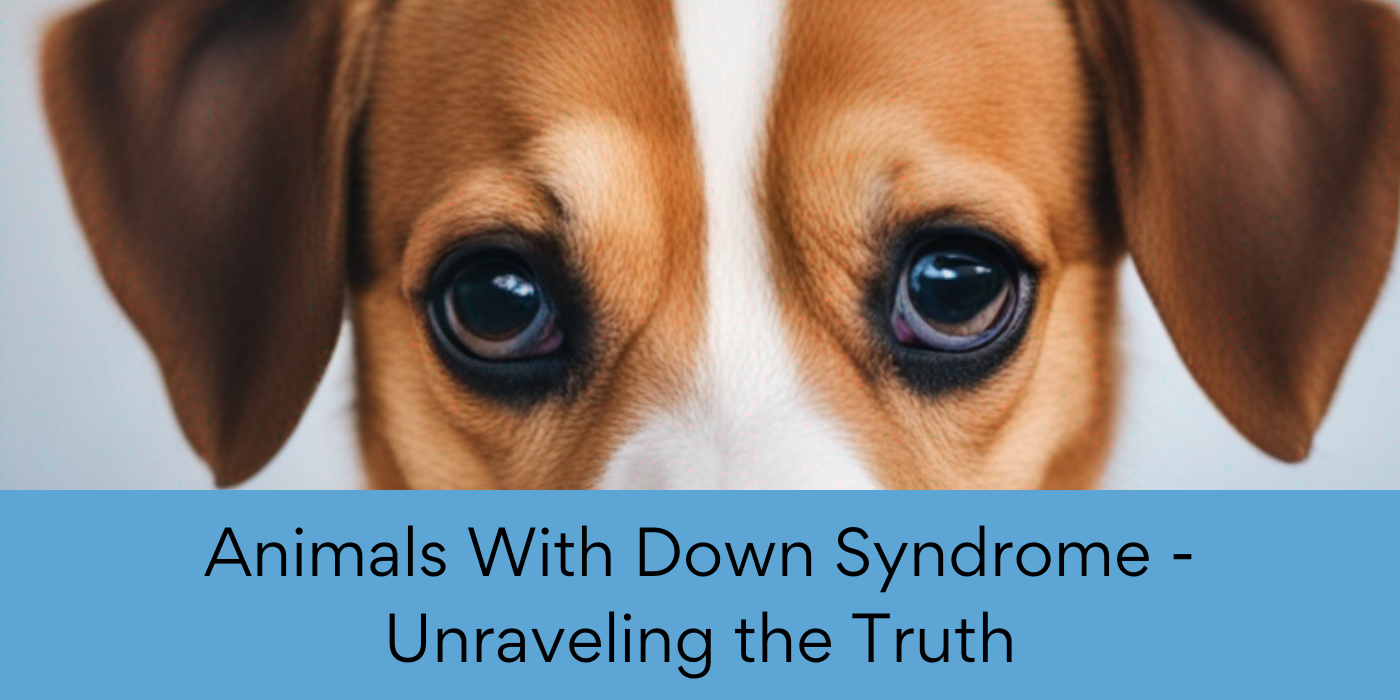Table of Contents
Introduction
Animals With Down Syndrome – In recent times, the internet has been awash with stories and pictures of animals purported to have Down Syndrome. Dogs with soulful eyes, cats with unusual facial features, and even wildlife like tigers have been labeled as having this genetic condition. These stories often tug at the heartstrings and invite a flurry of social media attention. However, it’s crucial to dive into the facts and understand the reality behind the notion of “animals with Down Syndrome.”
Understanding Down Syndrome

Down Syndrome is a genetic condition caused exclusively in humans by the presence of an extra copy of chromosome 21. This extra genetic material affects a person’s physical and cognitive development. Given that Down Syndrome is a human-specific condition, the idea of animals having Down Syndrome arises from a misunderstanding of genetics.
The Misconception About Animals with Down Syndrome
The belief that animals can have Down Syndrome stems from observing pets and wildlife with certain physical traits that resemble those of humans diagnosed with the condition. However, these similarities are superficial. The genetic makeup of animals and humans differs significantly, making it impossible for animals to have Down Syndrome in the way humans do.
Common Conditions in Animals Misidentified as Down Syndrome
Animals can exhibit conditions that may superficially look like Down Syndrome due to various genetic or health issues. For instance –
- Dogs with Congenital Conditions – Dogs might display traits such as unusual facial structures or developmental delays due to diverse genetic conditions, not Down Syndrome.
- Cats with Unique Facial Features – Some cats are born with facial features or behaviors that prompt comparisons to Down Syndrome. These characteristics are usually attributable to their unique genetic conditions or congenital anomalies.
- Tigers and Other Wildlife – Viral stories often feature wildlife with appearances that lead some to claim they have Down Syndrome. In reality, these are natural variations or results of other genetic factors.
The Importance of Proper Veterinary Care
Animals exhibiting unusual physical traits or developmental issues require proper veterinary diagnosis and care. Veterinary science is equipped to identify and manage such conditions, ensuring animals lead comfortable and healthy lives. Mislabeling these conditions as Down Syndrome does not aid in their treatment or understanding.
The Role of Responsible Reporting and Information Sharing
The spread of misinformation regarding animals with Down Syndrome highlights the need for responsible reporting and information sharing. Using correct terminology and understanding the scientific basis of animal health conditions are vital steps in ensuring the public receives accurate information.
Ethical Considerations in Treating Animals with Special Needs
Caring for animals with special needs brings about ethical considerations. It demands a commitment from pet owners and a compassionate approach from veterinarians. Acknowledging the special care requirements of these animals ensures they receive the love and support they deserve.
Conclusion (Animals With Down Syndrome)
While the stories of “animals with Down Syndrome” may capture our empathy, it is crucial to approach the topic with knowledge and understanding. Animals, indeed, cannot have Down Syndrome as humans do, but they can have other conditions that merit attention and care. Through education and proper veterinary support, we can ensure that animals with special needs live fulfilling lives. An informed and compassionate approach towards animals with unique challenges not only benefits them but enriches our lives as well.
FAQs
Can animals actually have Down Syndrome?
No, animals cannot have Down Syndrome as it is a genetic condition specific to humans.
Why do some animals look like they have Down Syndrome?
Some animals exhibit physical traits or behaviors due to various genetic conditions or congenital anomalies, which might superficially resemble Down Syndrome in humans.
How can we care for animals with special needs?
Providing appropriate veterinary care, a supportive environment, and understanding their unique requirements are crucial for caring for animals with special needs.
Is it harmful to claim an animal has Down Syndrome?
Mislabeling animal conditions as Down Syndrome can spread misinformation and detract from understanding their actual health needs.
What should I do if I think my pet has a genetic condition?
Consult a veterinarian for a proper diagnosis and treatment plan tailored to your pet’s specific needs.
Are there specific breeds of dogs more prone to conditions that resemble Down Syndrome?
Some dog breeds may be more susceptible to congenital conditions due to genetics, but these are not related to Down Syndrome.
Can proper care improve the quality of life for animals with congenital conditions?
Yes, with proper veterinary care and a supportive environment, animals with congenital conditions can lead comfortable and fulfilling lives.
Why is it important to use correct terminology when discussing animal health?
Using accurate terminology helps in spreading correct information and aids in the proper understanding and treatment of animal health conditions.
Do animals with these conditions require special attention?
Yes, animals with unique health conditions may require special medical care, dietary considerations, and environmental adjustments.
How can awareness about this topic be improved?
Education, responsible reporting, and sharing accurate information through credible sources can improve awareness and understanding of animal health conditions.
To Read More Articles About Health, Click Here




